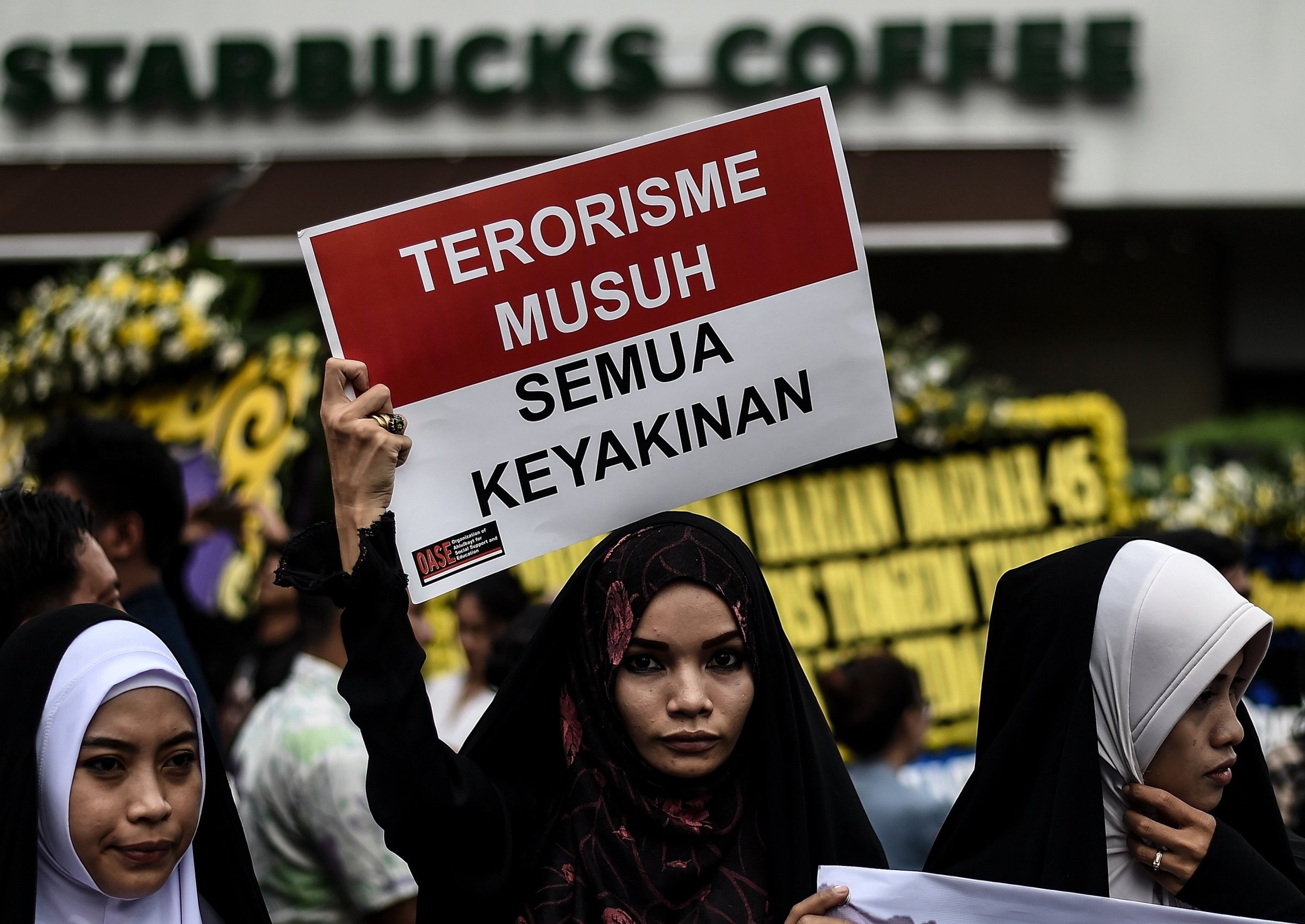
While serving time for financing terrorist activities, Muhammad Jibriel Abdul Rahman used to hear the extremist sermons echoing through east Jakarta’s infamous Cipinang prison. Everyday, Aman Abdurrahman, an Islamic cleric who had also been jailed on a terrorism-related conviction, gathered inmates and preached his virulent message: the Indonesian government, with its secular underpinnings, was to be destroyed and replaced by an Islamic state untroubled by apostates. The prison guards did little to stop his violent call to jihad.
One of the convicts lured by the radical cleric, says Jibriel, was a quiet youth named Sunakim, who had been given a seven-year sentence for participating in a terrorist-training camp in the Indonesian province of Aceh. Sunakim must have impressed the imam because he was eventually granted the honor of acting as his masseur. Last year, Sunakim was released early from jail on account of good behavior. Meanwhile, Aman, who has since been transferred to another prison, stepped up his glorification of a militant network spreading across the globe: the Islamic State of Iraq and Greater Syria (ISIS).
On Jan. 14, Sunakim, also known as Afif, opened fire on one of Jakarta’s busiest thoroughfares in what would be later be labeled ISIS’s first foray into Indonesia. The violence claimed four innocent lives, along with those of the four assailants, ending a seven-year lull in terrorist attacks in the Indonesian capital. One of Sunakim’s fellow attackers, Muhammad Ali, was also an ex-convict inspired by Aman, whose recorded sermons reached other jails with disturbing ease.
Read Next: ISIS Opens a New Battlefront in Asia With Jakarta Attacks
Compared with the horror that ISIS has unleashed in other parts of the world, the Jakarta attack claimed fewer lives. Yet the question remains: How much of an inroad has ISIS made in Indonesia, the nation with the world’s largest Muslim population? And has the government, often praised for its counterterrorism efforts, done enough to stop the spread of extremism, particularly in Indonesian jails? Noor Huda Ismail, founder of the Institute for International Peace Building in Jakarta, has been tracking the alarming recidivism of Indonesian terrorist convicts, along with the radicalization of inmates who were imprisoned for other crimes. “Our interviews reveal that for Indonesian jihadists, a spell in prison, rather than being an intervention stage, is seen as a way station to further glory,” he writes. “Many leave prison not only unreformed, but also more influential in local jihadi circles.”
With a population of more than 250 million people scattered across some 6,000 inhabited islands, Indonesia remains a diverse place. The predominant local strain of Islam fuses indigenous mysticism and Hindu precursors with the imported Middle Eastern faith. At least 20 million Indonesians are Christian, and evangelism is booming. Yet purist Salafi Muslim influences have long maintained a core of believers, and the conservative movement has gained more adherents in recent years, partly through Saudi funding of local mosques and Islamic schools.
Read Next: Could Indonesia’s President Become the Middle East’s New Mediator?
Long before the January attack, Indonesia was periodically engulfed by sectarian and ethnic strife. Bloodletting against ethnic Chinese and suspected communists erupted in the mid-1960s, killing hundreds of thousands of people. (Another anti-Chinese pogrom flared in 1998.) A cycle of Muslim-Christian vengeance has also claimed hundreds of lives in Poso, on eastern Indonesia’s Sulawesi island. At the same time, generations of Islamic extremists — under different guises, such as Darul Islam or, later, Jemaah Islamiah (JI) — have called for a Muslim caliphate, even though Indonesia’s constitution guarantees religious diversity. When al-Qaeda metastasized at the turn of this century, Indonesian affiliate JI unleashed a series of deadly attacks, the most devastating of which was the 2002 bombing on the holiday isle of Bali, which killed 202 people, many foreigners.
Efforts by Indonesia’s counterterrorist force, Densus 88, appeared to have forestalled violent outbreaks for years. The last major JI bombing was of two international hotels in Jakarta in 2009, in which seven bystanders perished. Since then, the Indonesian government has boasted of foiling dozens of planned attacks, including one that was supposed to sow chaos around Christmas last year.
Critics, though, blame Densus 88’s heavy-handed tactics in dismantling terrorist networks for alienating a generation of youth susceptible to the call of jihad. The government says it does have a deradicalization program in which psychologists and local Islamic clerics, as well as ulamas from Egypt and Jordan, visit prisons in order to preach moderation to convicted terrorists. Reformed Islamic militants have also been recruited to sway inmates. “I won’t say the deradicalization program is a failure,” says Saud Usman Nasution, chief of Indonesia’s National Counterterrorism Agency. “Some [terrorism convicts] are really hard, it’s impossible to change them. We managed to soften some others too.”
Saud notes that there are 215 Indonesians in prison on terrorism convictions, scattered across a nation itself flung across the equator. Unlike what might happen in authoritarian nations with little regard for the law, Indonesian prisoners are released once their sentences are up, regardless of whether deradicalization has taken root. (Having suffered under decades of autocracy, Indonesians tend to prefer laws that give authorities less power.) Still, Saud admits that Indonesia’s jails are overcrowded, allowing radicals to intermingle and lure others with their violent ideology. “If some of them come out more radical, it’s because they meet others in prison and they learn from each other,” he says. “This is a big problem for our nation, because of overcapacity. They meet other terrorists, they discuss, they preach. From these exchanges, they learn new things.”
Ansyaad Mbai, Saud’s now retired predecessor as head of Indonesia’s counterterrorism agency, is more blunt. “Deradicalization doesn’t work,” he says. “When I was chief, [prison officials] would say: ‘Please, don’t put terrorists in my jail because we feel threatened.’” Ansyaad says prison guards fear their personal safety will be compromised by militants and therefore allow convicted terrorists to operate what amount to independent fiefdoms in jail. Often, Ansyaad says, these prisoners can wear Islamic robes, rather than prison uniforms. They operate their own kitchens with food sourced from outside prison walls. Even Saud acknowledges the difficulty in controlling these inmates. “They don’t eat our [prison] food, they won’t listen to the ulamas we bring in,” he says. “Even if we come to prison, they don’t want to talk to us, because they consider us infidels.”
The charisma of some militant prisoners is so great that, in one case, a prison guard was turned by his own charge: one of the 2002 Bali bombers. In other cases, children of Indonesian jihadists — who were part of the great wave of foreign fighters that flocked to Afghanistan — have followed their family destiny. At least two sons of the 2002 Bali bombers are believed to have fought with ISIS in Syria, as have offsprings of top JI commanders.
Terrorism analysts also worry about a future spike in violence due to rivalry within Indonesian terrorist networks. In a report released this month, the Jakarta-based Institute for Policy Analysis of Conflict (IPAC) warned: “More terrorist attacks in Indonesia are likely as local ISIS leaders compete at home and abroad to establish their supremacy.” The January attack is now viewed by police as the handiwork of a local militant group, Partisans of the Caliphate. Known locally as Jamaah Anshar Khilafah, (JAK), the newly formed group “is believed to be led from prison by Indonesia’s leading pro-ISIS cleric, Aman Abdurrahman,” according to IPAC’s report.
Yet initially, Bahrun Naim — an Indonesian ISIS deputy in Syria, whom police believed orchestrated two foiled bombings in Indonesia last year, as well as organizing digital bombmaking classes — was blamed for the attack. Then, days after the Jan. 14 assault, Indonesian authorities say they thwarted an attempt by yet another terrorist cell that had been, as IPAC put it, “taken by surprise by the Jakarta attacks and immediately ordered … men in Indonesia to do something similar.” Complicating matters, other ISIS-linked alliances have emerged, including one led by Indonesia’s most wanted man Santoso, who operates in Poso, surrounded by a band of renegades that includes some ethnic Uighur fighters native to northwest China. Santoso has called for jihad both at home in Central Sulawesi and in Jakarta, says IPAC.
Going to Syria to join ISIS is not a crime in Indonesia, and, anyway, legal experts say it can be hard to differentiate between those who fight with ISIS and those who volunteer for other Syrian resistance groups. The nation’s police chief has pushed for more authority to detain suspected ISIS members, and admits to funding gaps in monitoring the hundreds of Indonesians who have returned from Syria, mostly voluntarily. In addition, the Indonesian Ministry of Foreign Affairs says that last year, 210 Indonesians, some women and children, were deported from six other nations either because they were trying to get to Syria to join ISIS through these countries or had already joined the extremist organization. Another 50 Indonesians are believed to have been killed during conflict in Syria, according to Indonesian counterterrorism officials.
One of those who died in Syria last year was Ridwan, the younger brother of Jibriel, the former inmate who remembers hearing Aman’s radical sermons in the Jakarta jail. Jibriel, who was released early for good behavior, displays no love for ISIS. It’s a distaste shared by others associated with Islamic conservatism across Southeast Asia. In the Philippines, for instance, the Moro Islamic Liberation Front, one of several separatist insurgencies that are battling government troops on southern Mindanao island, has created a task force to stop ISIS from recruiting youth in this Muslim swath of the nation.
Attack in Jakarta: Bombs and Gunfire in Indonesia's Capital
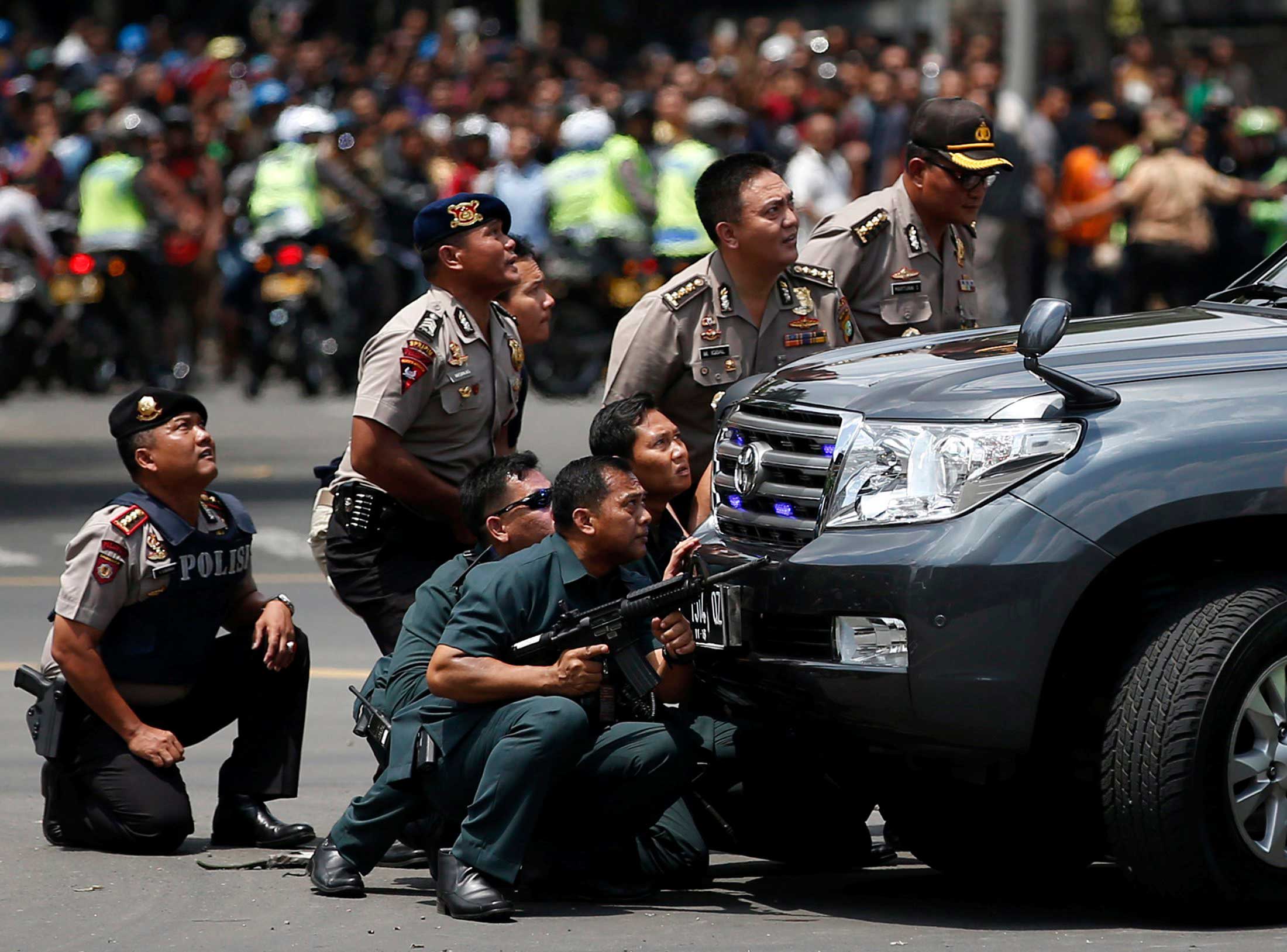
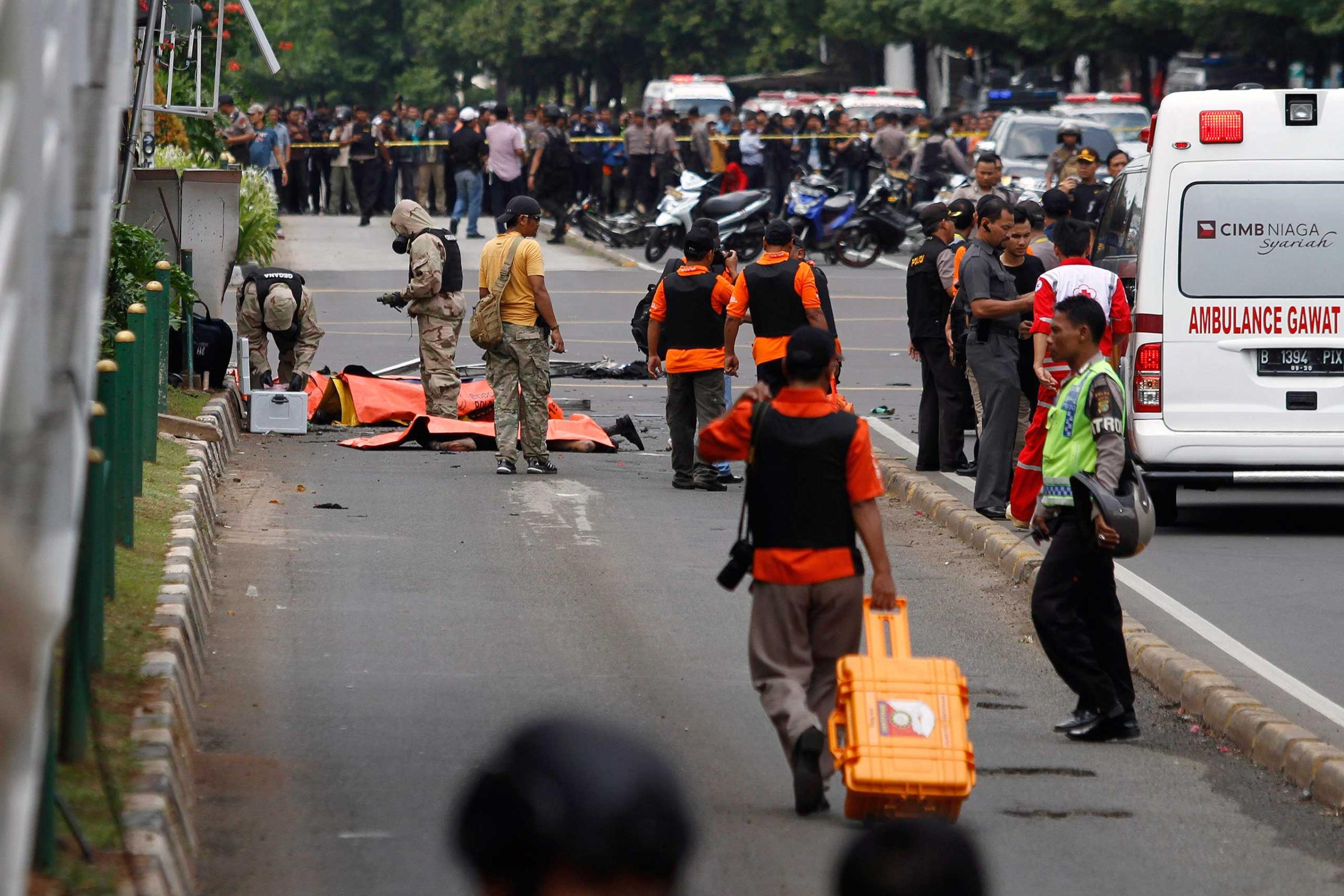
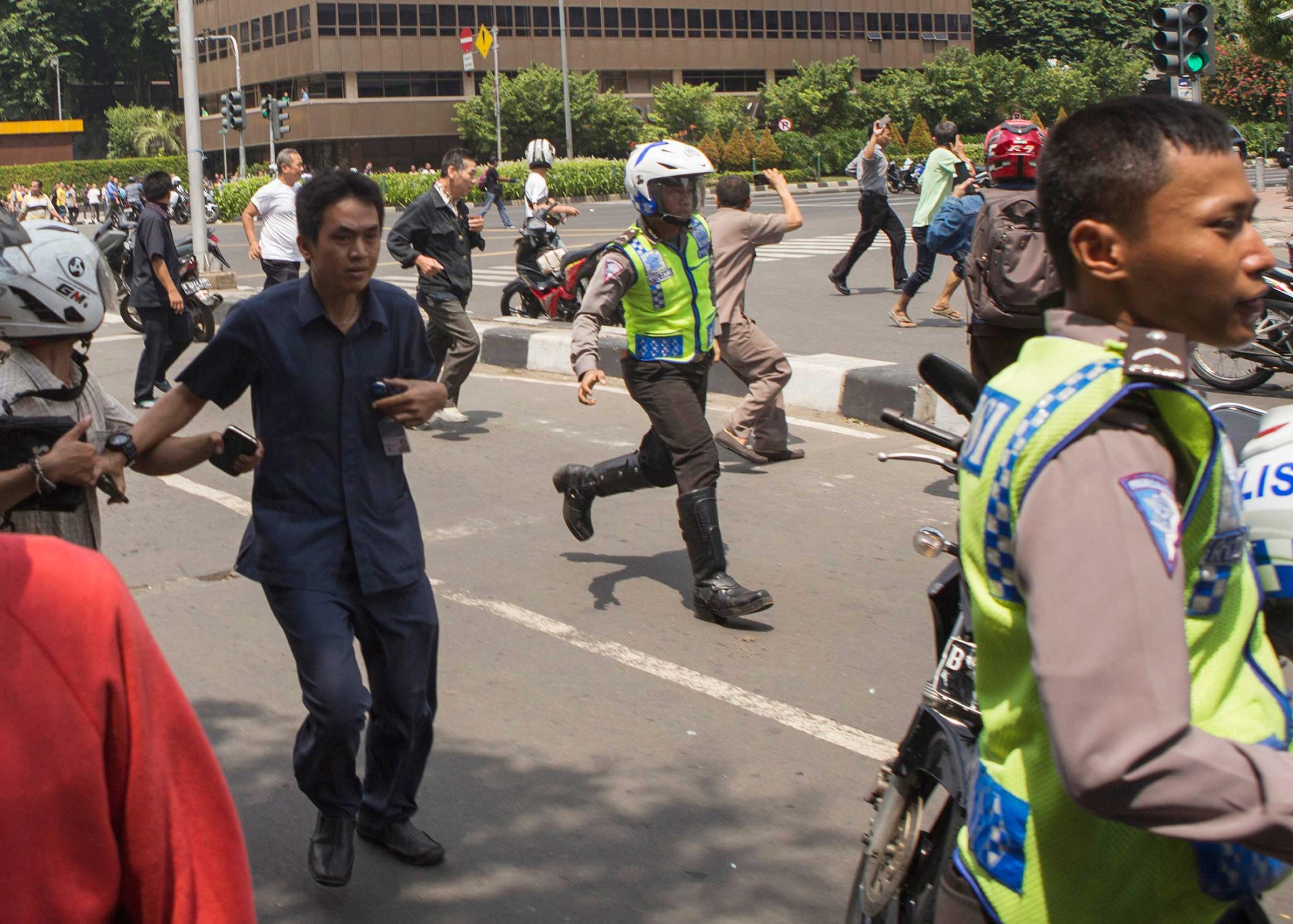
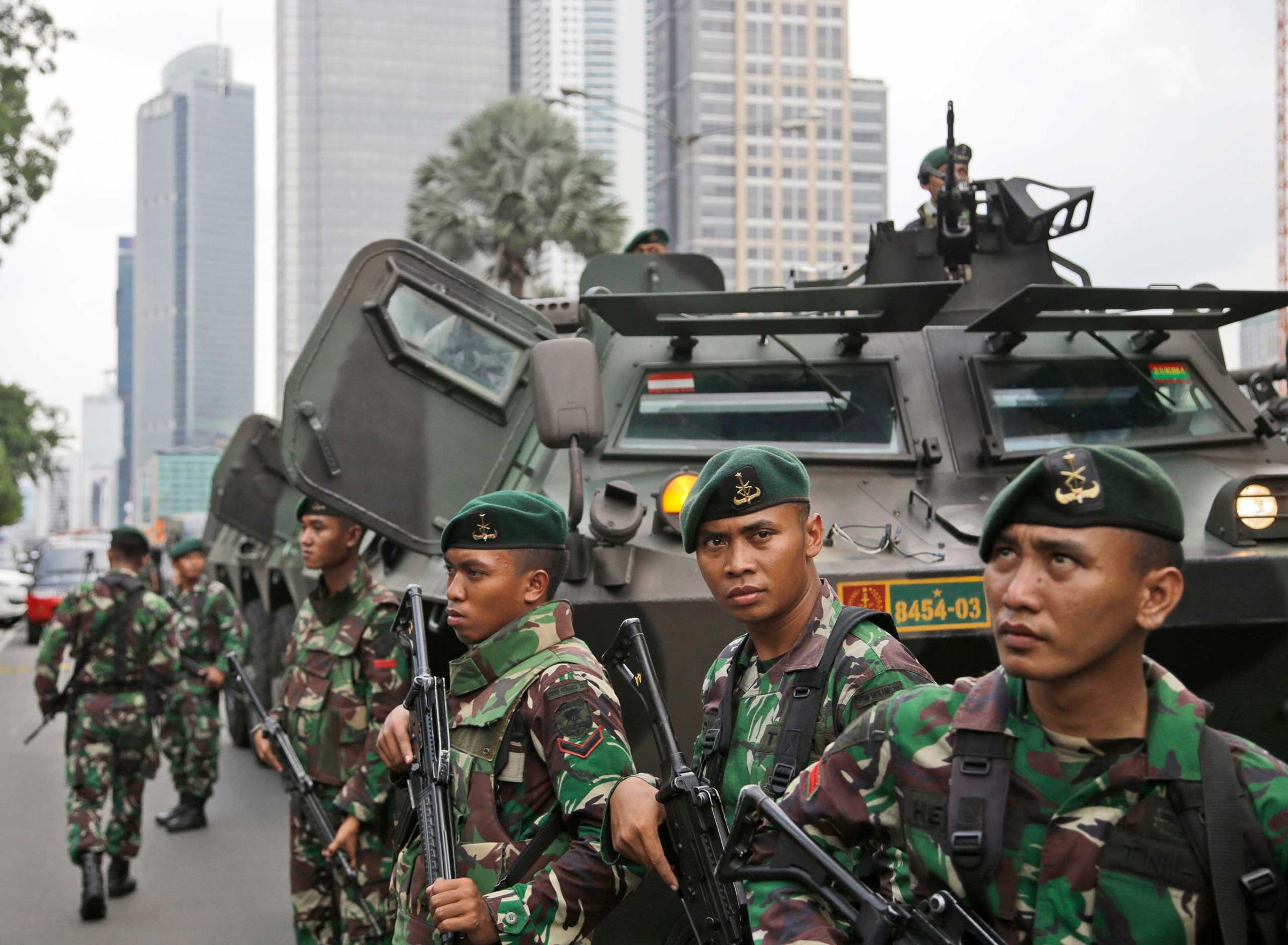
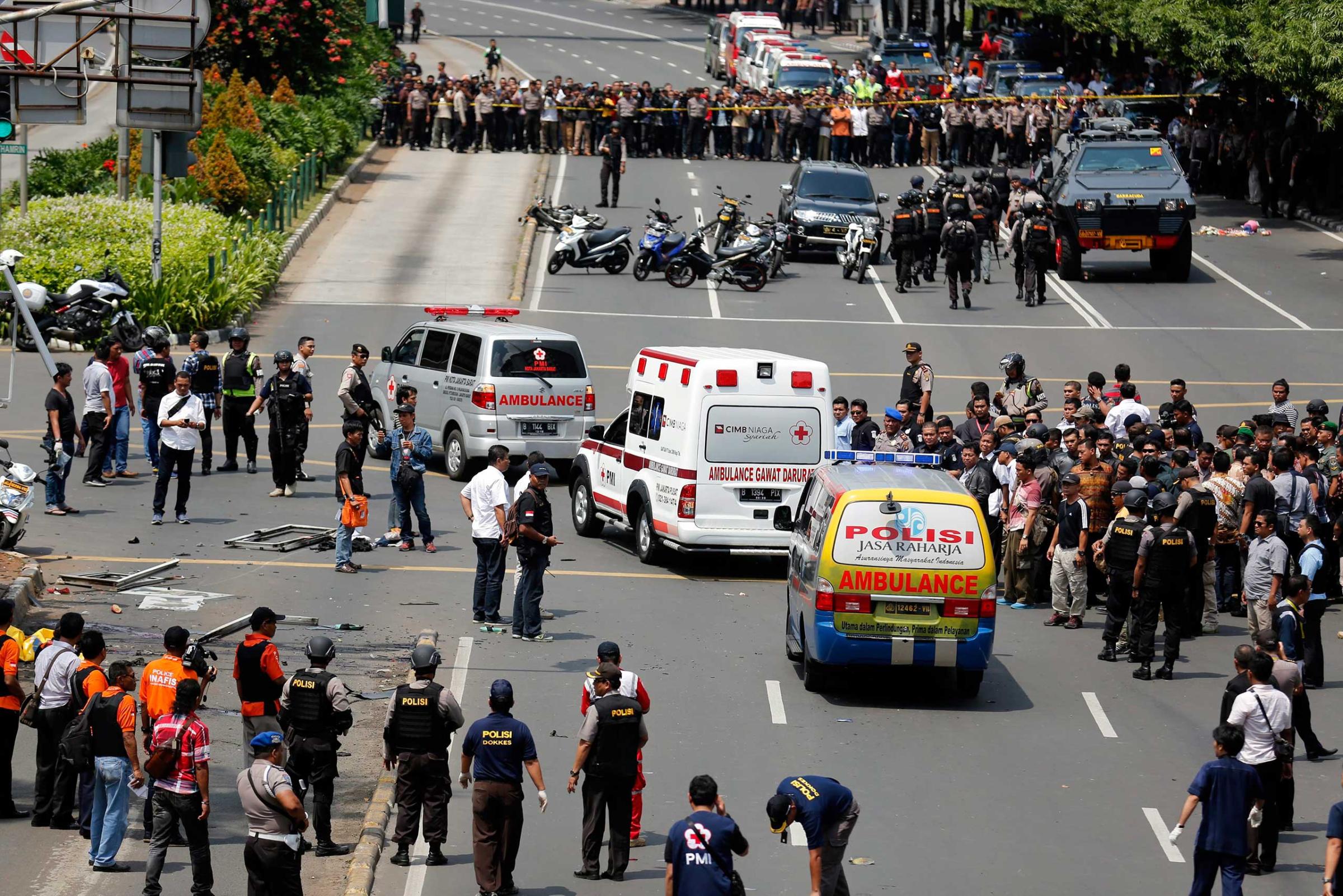
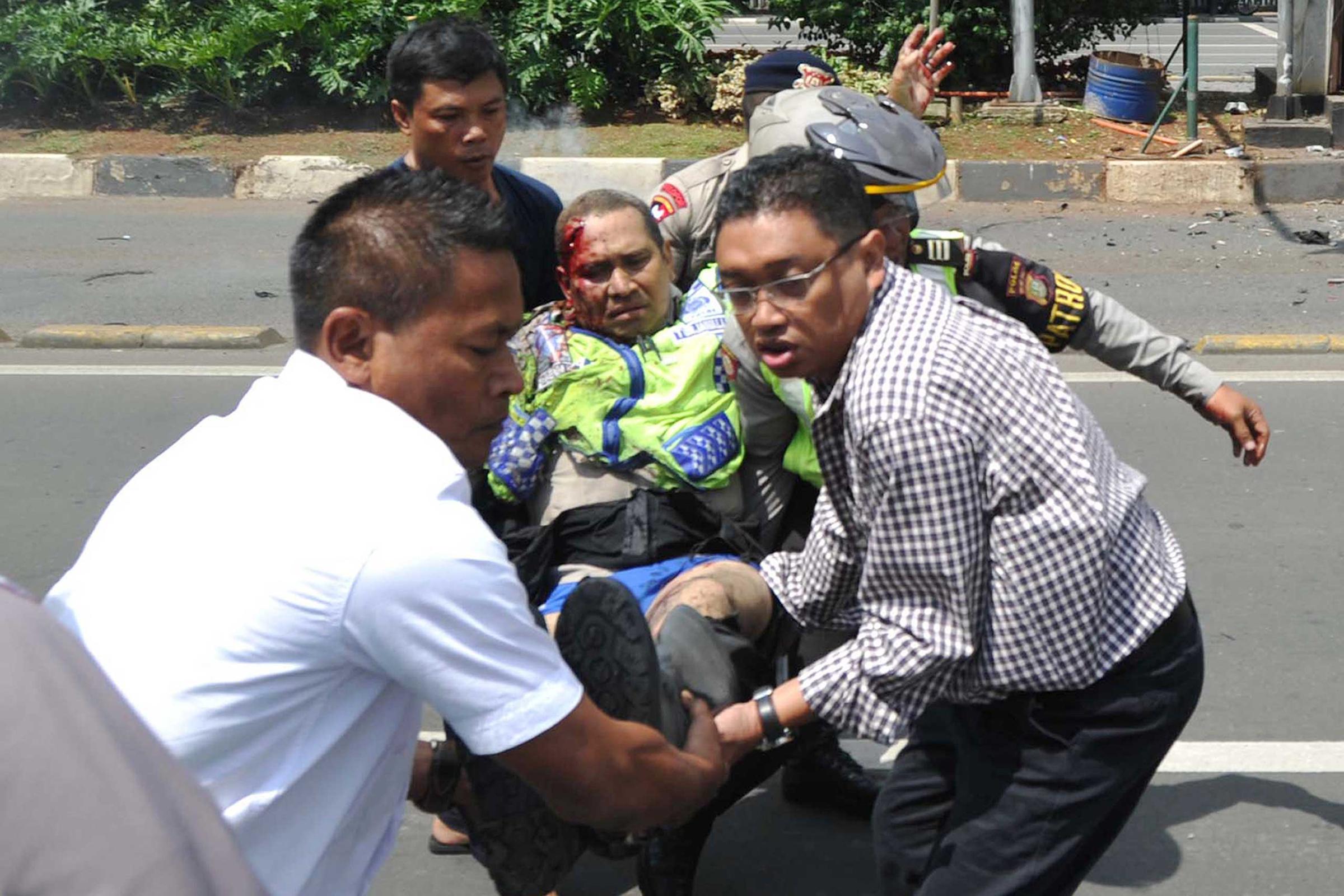
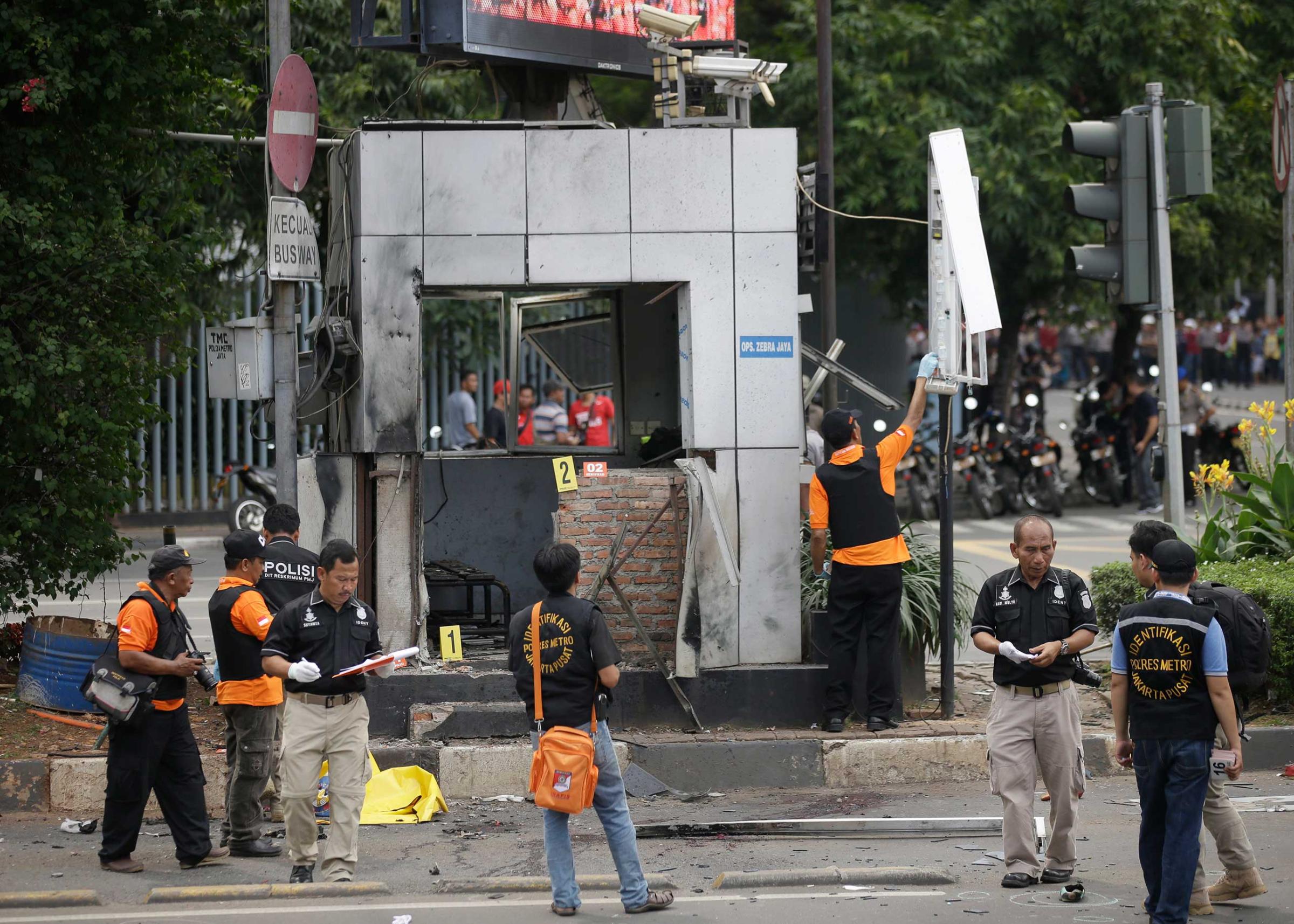
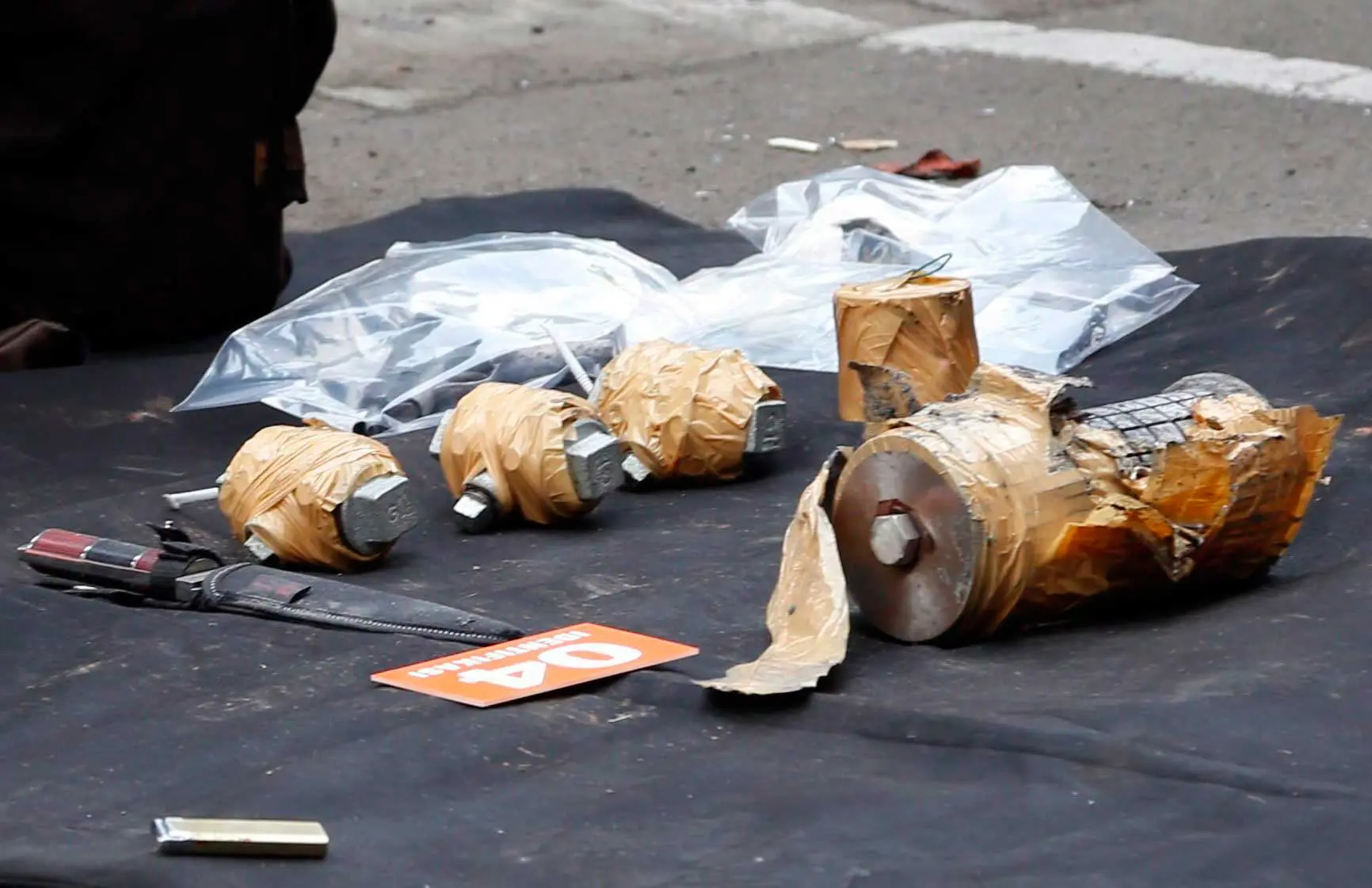
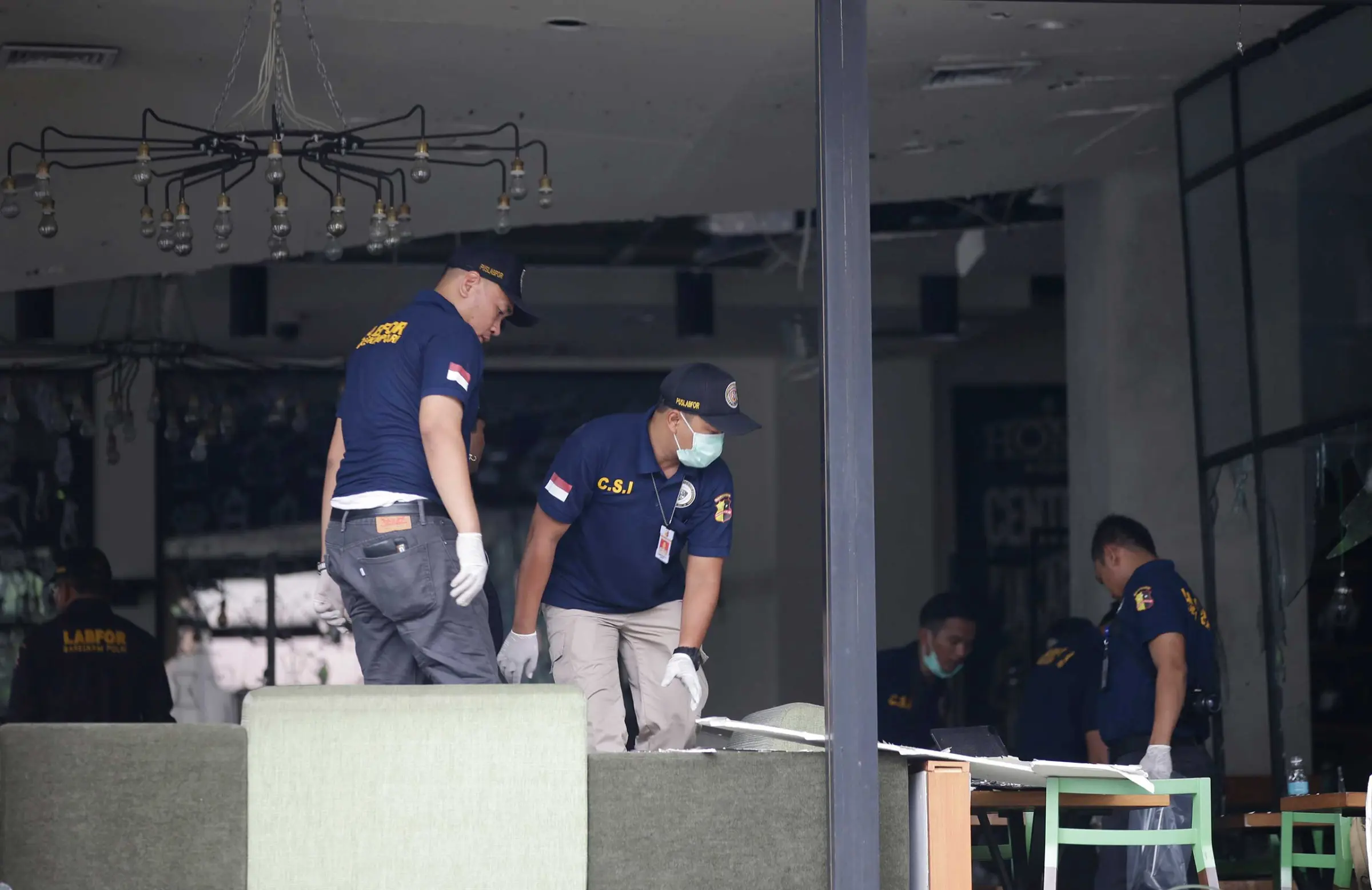
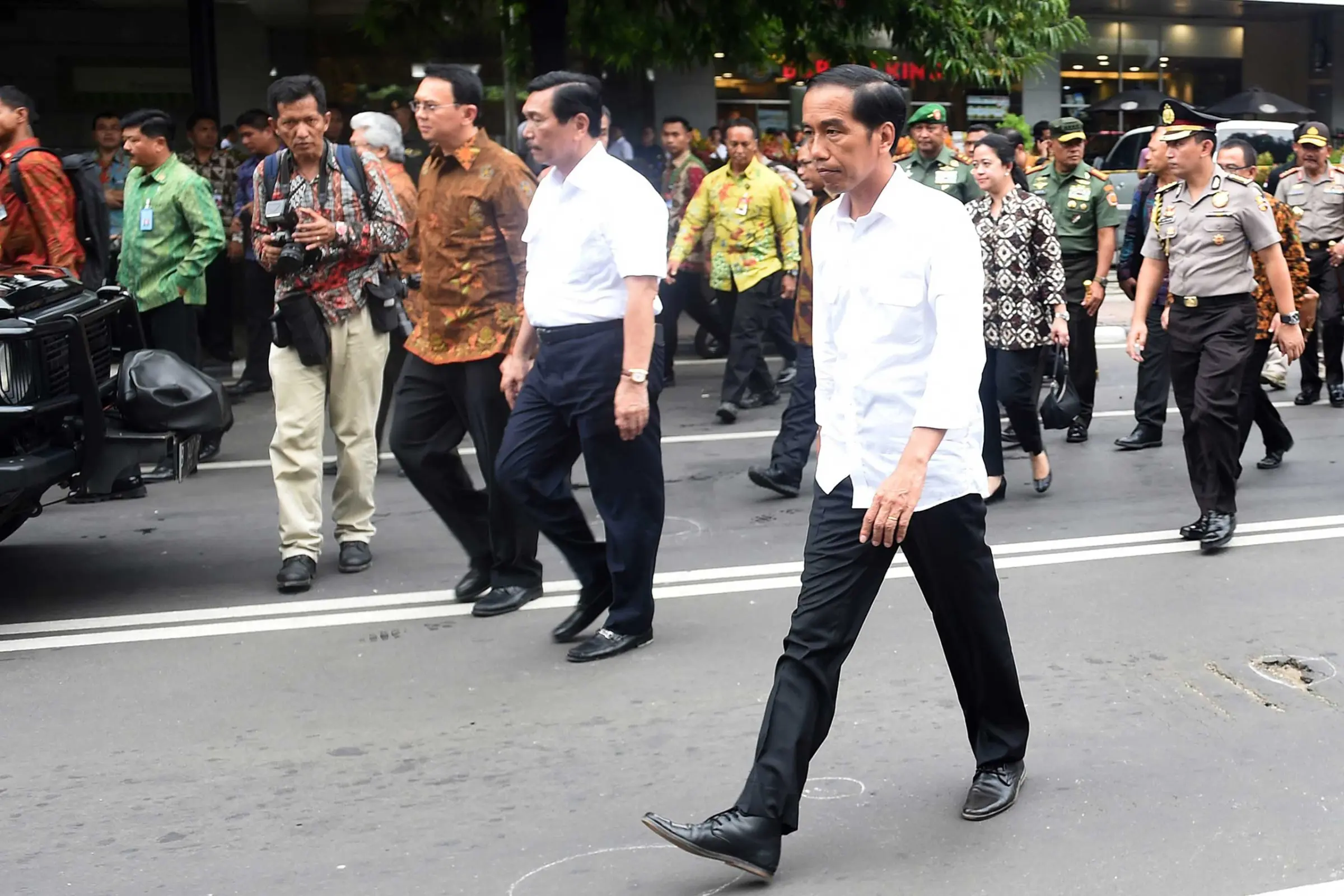
In fact, Jibriel claims his little brother, his mother’s favorite, was actually in Syria fighting for another rebel group. (Indonesian police disagree, believing Ridwan joined ISIS.) “Ridwan just wanted to help the people of Syria,” Jibriel says. But he also admits that another young relative has gone to Syria to battle for ISIS, lured by the flashy online videos in Indonesian that are easily accessible in this well-wired nation. “The Indonesians who join ISIS, they are so stupid,” Jibriel says. “They go on WhatsApp and see promises that they can get a female slave in Syria so they think, ‘I want to go there. I want to do jihad.’ But it’s really for the sex instinct.”
Jibriel, who once studied in Pakistan and admits to having known JI bombmaker Noordin Top, now runs a clothing-design business selling T-shirts emblazoned with Osama bin Laden’s face or slogans like “Fulltime Muslim,” “Jihad” and “Trrrst.” He says he met several times with Bahrun — the Indonesian commander believed to be based in the ISIS stronghold of Raqqa — before the onetime computer hacker departed for Syria early last year. Jibriel describes Bahrun as “a soft man who I’m surprised to hear can now make bombs.”
Although some of the Indonesians who head to the Middle East may be motivated by the thought of generous stipends for foreign fighters, not to mention the lure of female companionship, others are hardly from poor families. Bahrun ran an Internet café and his young wife, another Indonesian from near the central Java city of Solo, was a nursing student. He spent a couple years in jail for illegal weapons possession, in connection with a cache of arms connected to suspected terrorists. Bahrun’s further radicalization, Jibriel believes, occurred in jail, where terrorist cells can multiply or shape-shift.
The T-shirt entrepreneur, who has also managed a fiery Islamic website, says his time in prison wasn’t bad at all. “For some people, Indonesian prisons are like a mall,” he says. “It’s like you can call KFC, you can do Facebook, you can even get a wife.” (In fact, Jibriel married his Malaysian doctor wife while he was incarcerated.) He says deradicalization officials came to visit only a couple times during his years in jail. “The government didn’t deradicalize me, I deradicalized myself,” he says. “But many of my friends in prison, they didn’t want to deradicalize. They listened to Aman Abdurrahman, and he could smoothly radicalize them. The government cannot compete with what he says.”
— With reporting by Muktita Suhartono / Jakarta
More Must-Reads From TIME
- The 100 Most Influential People of 2024
- The Revolution of Yulia Navalnaya
- 6 Compliments That Land Every Time
- What's the Deal With the Bitcoin Halving?
- If You're Dating Right Now , You're Brave: Column
- The AI That Could Heal a Divided Internet
- Fallout Is a Brilliant Model for the Future of Video Game Adaptations
- Want Weekly Recs on What to Watch, Read, and More? Sign Up for Worth Your Time
Contact us at letters@time.com